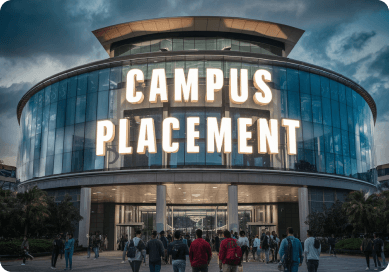Enter OTP



Paris, France

Paris, France

Cost Of Living

Undergraduate Fees International Students

Post Graduate Fees International Students

Telecom ParisTech stands out for its deep-rooted expertise in digital technology and its cutting-edge research across fields like AI, data mining, image and signal processing, and real-time systems. Its strength lies in blending theoretical foundations with applied innovation, making it a key player in shaping the future of information and communication technology. The institution is especially known for its work on optimizing data transmission, developing intuitive human-computer interfaces, and advancing user experience design. Research here isn’t siloed—it thrives at the intersection of tech, design, and societal impact. The school consistently contributes to global advancements in wavelets, distributed systems, and information visualization. This strong research culture, paired with real-world relevance, forms the core of its identity.
Patrick Drahi (born August 1963) is a French‑Israeli telecom billionaire and investor. A Télécom ParisTech graduate,... View More
Patrick Drahi (born August 1963) is a French‑Israeli telecom billionaire and investor. A Télécom ParisTech graduate, he founded Altice, a multinational telecom and media group spanning Europe and the Americas. His entrepreneurial vision transformed Altice into one of Europe’s largest telecom operators, with interests in cable TV, broadband, mobile networks, and media. Drahi is known for bold acquisitions and strategic turnarounds. His journey from a student in Paris to global industry leader shows how Télécom ParisTech graduates can shape global telecom networks and media landscapes. View Less
Jean‑Marc Jancovici (born 1962) is an engineer, consultant, climate expert, and professor. He graduated from Télécom... View More
Jean‑Marc Jancovici (born 1962) is an engineer, consultant, climate expert, and professor. He graduated from Télécom ParisTech in the mid-1980s. Jancovici co-founded Carbone 4, an energy and climate consultancy, and is founding president of the think tank The Shift Project. He’s a prolific speaker and writer on carbon footprint, sustainable energy policies, and climate change mitigation. His path illustrates Télécom ParisTech’s ability to train tech-savvy thinkers who apply engineering rigor to environmental and policy challenges. View Less
Pascale Sourisse (born March 1962) is a leading telecom business executive. After graduating from Télécom ParisTech,... View More
Pascale Sourisse (born March 1962) is a leading telecom business executive. After graduating from Télécom ParisTech, she built a stellar career—including senior roles at France Telecom, the French Ministry of Industry, and leadership of Eurospace (2002–2008) . Sourisse has overseen key space and telecom industry initiatives across Europe. Her leadership style blends deep technical knowledge with strategic vision, showing that alumni can lead complex technological organizations at the highest levels. View Less
Anne Bouverot (born March 1966) holds degrees in both AI and telecommunications from Télécom ParisTech and ENS. She ... View More
Anne Bouverot (born March 1966) holds degrees in both AI and telecommunications from Télécom ParisTech and ENS. She has held executive roles at Orange, led GSMA as CEO, and later chaired Morpho (now IDEMIA). Bouverot co‑founded Fondation Abeona to explore AI’s societal impact. She led global AI policy initiatives, including advising the French President on AI strategy and organizing an AI Action Summit in 2024. Her career highlights Télécom ParisTech’s reach into global tech governance, policy, and innovation. View Less
Magali Vaissière (born July 1957) is a distinguished telecom engineer and former Director of Telecommunications and I... View More
Magali Vaissière (born July 1957) is a distinguished telecom engineer and former Director of Telecommunications and Integrated Applications at the European Space Agency (ESA) from 2008 to 2020. She also headed ESA’s UK center, ECSAT. A Télécom ParisTech alumna with advanced degrees, she led ARTES (Advanced Research in Telecommunications Systems), overseeing satellite telecom research projects. Vaissière earned numerous honors, including the Irène‑Joliot‑Curie Prize, Legion of Honour, and UK Space Personality of the Year. She represents alumni’s impact in space‑age communications. View Less
Hubert Zimmermann (1941–2012) was a pioneering computer scientist and networking visionary educated at Télécom Paris... View More
Hubert Zimmermann (1941–2012) was a pioneering computer scientist and networking visionary educated at Télécom ParisTech. He played a key role at INRIA, led the CYCLADES project under Louis Pouzin, and contributed as a member of the International Network Working Group. His work influenced the foundational architecture of the Internet—cited in the seminal Cerf‑Kahn paper on packet‐based networking. Zimmermann’s career shows the depth of innovation nurtured at Télécom ParisTech from early days of digital communication. View Less
Jean‑Louis Dessalles (born 1956) is a computer scientist and professor at Télécom ParisTech. He is best known for co... View More
Jean‑Louis Dessalles (born 1956) is a computer scientist and professor at Télécom ParisTech. He is best known for contributions to simplicity theory and theories on the political origins of language. His interdisciplinary work blends AI, cognitive science, and linguistics. Dessalles uses complexity theory to analyze narrative structures and communication. His career is a model of academic rigor and theoretical innovation within the Télécom ParisTech ecosystem, demonstrating how the school fosters deep thinkers who cross disciplinary View Less
David Cournapeau is a data scientist, best known as the original author of scikit-learn, the widely used open‑source m... View More
David Cournapeau is a data scientist, best known as the original author of scikit-learn, the widely used open‑source machine learning library for Python. A Télécom ParisTech graduate, he helped build a tool that has become foundational in modern data science and AI. His work empowers practitioners across industries to apply machine learning without building algorithms from scratch. Cournapeau’s path shows how a graduate can influence the global AI community through open source and practical innovation. View Less
Fabrice Bellard is a celebrated software engineer and Télécom ParisTech alumnus, creator of FFmpeg, QEMU, and the Tiny... View More
Fabrice Bellard is a celebrated software engineer and Télécom ParisTech alumnus, creator of FFmpeg, QEMU, and the Tiny C Compiler. His work includes Bellard’s formula, which computes individual digits of π. Bellard co-founded Amarisoft, a company specializing in telecom software stacks. His inventions underpin key aspects of multimedia, virtualization, telecom, and computational mathematics. Bellard exemplifies the creative technical genius produced by Télécom ParisTech, shaping both infrastructure and tools used worldwide. View Less
Télécom Paris boasts a cutting-edge campus in Palaiseau near Paris, integrated into the Paris-Saclay innovation cluster. The infrastructure includes high-tech laboratories, smart classrooms, collaborative maker spaces, and specialized research hubs in AI, cybersecurity, and telecom networks. Students have 24/7 access to computing labs and digital simulation platforms. The library is fully digital-equipped with access to thousands of journals and engineering resources. Its campus design fosters innovation, with eco-conscious architecture, co-working lounges, and shared spaces for student clubs and entrepreneurial projects. The environment is built to support hands-on learning, experimentation, and global industry collaboration.
Student life at Télécom Paris is vibrant, collaborative, and deeply student-led. With over 40 clubs and associations, students dive into everything from robotics and entrepreneurship to dance, debate, and drama. The student union and tech clubs even manage the campus network and organize large-scale events. Sports are big too—students play across nearly 15 disciplines, often teaming up with peers from nearby schools. Cultural life thrives through music bands, film nights, festivals, and weekly themed parties. Living in campus housing makes social life tight-knit, with shared meals, late-night chats, and a strong sense of community.


Télécom Paris offers strong career services that include one-on-one coaching, resume reviews, mock interviews, and personalized job search assistance. Students get access to exclusive job and internship offers through the school’s dedicated career portal. The Career Center also organizes regular recruitment fairs, networking events, and industry-specific workshops. Safety-wise, all internships and job placements are vetted for student well-being and legal compliance. They provide guidance on contracts, workplace rights, and offer support in case of any professional misconduct. Overall, the system is built to help students transition into the workforce with confidence and security.
The below information is required while
completing the university application :
Essential documents you need when applying for Télécom?Paris’s undergraduate engineering program (Diplôme?d’Ingénieur entry via licence/university route):
Academic transcripts & grading scale
— Official transcripts from your bachelor's/university studies, including the grading system. Provide in original language plus a French or English translation for evaluation
Curriculum vitae (CV)
— A concise résumé outlining your education, relevant projects, internships, and technical skills
Motivation letter (Statement of Purpose)
— Personal statement in French or English explaining your background, reasons for applying, and fit with the program
Passport or ID copy
— Scanned copy showing identity and nationality (passport or national ID)
Two recommendation letters
— Academic or professional references (minimum two) from professors or supervisors who can attest to your preparation and potential
Language proficiency certificates
— Proof of B1 level in French or B2 in English. Acceptable tests include DELF/DALF/TCF for French or TOEFL/IELTS/TOEIC/Cambridge for English; exemptions possible if prior degree was taught in that language
Telecom ParisTech enjoys strong ties with leading global tech companies, making campus recruitment a robust and dynamic process. Its graduates are highly sought after for roles in AI, data science, telecommunications, cybersecurity, and software engineering. Companies across sectors—ranging from startups to giants like Google, Orange, and Thales—regularly recruit from the campus. The school’s curriculum, which combines technical depth with real-world projects, ensures students are industry-ready. Internship opportunities, career fairs, and networking events are embedded into the academic calendar to support placements. With its Paris location and stellar academic reputation, Telecom ParisTech consistently delivers top-tier employment outcomes.


Telecom ParisTech has earned a reputation as one of France’s top engineering schools, consistently recognized for its research excellence and contributions to the digital world. It has played a key role in advancing fields like artificial intelligence, image and signal processing, data mining, and real-time systems. The institution’s innovations in wavelets and data optimization have influenced both academic research and industry practices. Its strong industry collaborations have led to impactful developments in UX design, computer-human interfaces, and information visualization. The school regularly contributes to global research publications and tech breakthroughs. Its alumni, now leaders in science, business, and engineering, reflect its lasting impact.


By 2014, Télécom Paris Novation Center had incubated over 200 startups, generating ~78 million € in revenues, employing 2,000 people, and filing over 100 patents. That same year the school’s contracted research totaled over 11 million €—a clear sign of the innovation ecosystem’s scale and its impact on tech entrepreneurship
In June 2018, PhD student Thibault Rieutord and colleague Yuan He won the Best Student Paper Award at the ACM Symposium on Principles of Distributed Computing (PODC) for their work on an asynchronous computability theorem under fair adversaries. Co‑authored with professor Petr Kuznetsov, this achievement demonstrates the school’s leadership in theoretical distributed computing—getting international recognition for pushing forward our understanding of fault‐tolerant systems
In mid‑2018, Télécom Paris researcher Stéphan Clémençon received the Atos–Joseph Fourier Award in the artificial intelligence category. The prize, part of a broader national program recognizing excellence in numerical simulation, AI, and quantum computing, underscores the school’s strength in data science and applied mathematics
Since 2016, Télécom Paris has celebrated top doctoral research via its PhD Thesis Awards. These prizes spotlight standout contributions across fields like resource management, high‑dimensional regression, and human‑computer interaction. Winners are selected through rigorous pitch-based assessment in front of academic and industry juries. This internal tradition underlines the school’s commitment to nurturing world‑class doctoral talent annually
Florence Tupin’s SAR imaging group has amassed multiple major awards: IEEE TGRS Prize Paper Award (2016), First PhD Award by Fondations Mines-Télécom (2018), and IGARSS Best Paper in 2022. Their expertise in speckle reduction, SAR descriptor design, and deep learning methods has set international benchmarks in remote sensing analytics
Télécom Paris joined forces with Valeo, Inria, Mines ParisTech and CEA to create Valeo.IA, France’s first research center focused on AI and deep learning for autonomous vehicles. The initiative puts the school at the crossroads of mobility innovation, machine learning, and industrial collaboration in intelligent transport systems
In 2013, Mauro Sozio from Télécom Paris won a Google Faculty Research Award for his work on social media event detection. Also that year, PhD student Annelie Heuser earned a Google European Fellowship, and Anna Pappa received the Google Anita Borg Memorial Scholarship—recognition of excellence in tech research and support for diversity in computing across Europe
By 2014, Télécom Paris had secured the Carnot Télécom & Société Numérique label, making it part of France’s top Carnot Institute network for research excellence in digital science. The CNRS-supported recognition reflects its leading role in areas like security, network management, and big data science innovation
Prominent faculty members earned IEEE Fellow honors, such as Béatrice Pesquet‑Popescu in 2013 for work in image/video compression and networking, and Frédéric Dufaux in 2016 for contributions to visual information processing. These professional accolades reflect global acknowledgement of Télécom Paris’s impact in core signal processing and multimedia research
Télécom Paris played a founding role in the LINCS lab (Internet of the future), launched in 2010 with partners Nokia, Inria, UPMC and SystemX. LINCS teams have repeatedly earned best‑paper awards in areas like power allocation in NOMA, 5G beam management, and edge cloud systems—validating research excellence in network science and standards
Telecom ParisTech is a powerhouse of innovation, known for pioneering research in AI, signal and image processing, real-time systems, and data science. Its labs actively contribute to breakthroughs in data transmission, wavelets, and human-computer interaction, pushing the boundaries of how technology serves society. The school promotes interdisciplinary collaboration, where engineers, designers, and scientists work together on cutting-edge challenges. Research isn’t confined to theory—it’s tied closely to real-world applications, often in partnership with industry leaders. From optimizing user experience to shaping next-gen communication networks, its impact spans across domains. This vibrant research culture cements its role as a leader in digital transformation.
A 2015 patent co‑developed by Télécom ParisTech with Université Paris Diderot and CNRS describes a method to quantify pathology progression (e.g. tumors) via imaging techniques. The technique normalizes gray levels across time‑separated scans, computes signed difference maps, and applies statistical tests to assess changes in tissue volume. By combining imaging normalization with Gaussian distribution tests, researchers created a robust tool for monitoring pathologies’ evolution in medical imaging. This invention underlines how the school’s signal‑processing expertise extends to impactful healthcare applications
Scalinx, a spin‑off born from Telecom ParisTech research in 2015, developed a next‑generation analog-to-digital converter (ADC) with enhanced energy‑efficiency and performance. Designed for critical fields—defense, space, healthcare, communications—these converters improve signal quality interfaces between analog and digital systems. The core innovation came from lab research nurtured at Télécom ParisTech; collaborators included Orange, NXP, and Thales. Though a commercial product rather than a pure patent, Scalinx’s ADC technology reflects the school’s ability to translate fundamental analog/digital research into industrial-grade components
Building on the previous work, the group led by Rossini and Rossi in 2014 patented an ICN router design and packet management method for efficient content delivery networks. These patents define how named-data packets are processed, routed, and cached in network nodes, enabling optimized performance in large-scale deployment. The inventions support scalable, multipath forwarding and intelligent caching strategies—pushing ICN research from theory into practical architecture. The innovation reflects Télécom ParisTech’s leadership in shaping the future of Internet design
Developed by researchers Perino, Carofiglio, Rossini, and Chiocchetti in 2013, Télécom ParisTech patented a method for organizing forwarding information in ICN nodes and a dynamic interest forwarding mechanism (EPO patents filed in 2013–14). This innovation adapts request routing to changing caching conditions, topology, and content popularity—significantly improving content retrieval performance. Their system outperformed static strategies by using dynamic, path-aware forwarding decisions. This invention laid groundwork for more efficient next‑generation network architecture based on named data rather than host addresses.
The Secure‑IC start‑up, incubated at Télécom ParisTech and co‑founded by three faculty inventors, created a platform to secure connected objects and embedded systems (e‑passports, credit cards, automotive electronics). Leveraging patented cryptographic masking circuits, Secure‑IC offers end‑to‑end hardware and software security solutions. From prototype to product, their technology enables robust protection against side‑channel attacks—a major innovation in device-level cybersecurity. Their success demonstrates Telecom ParisTech’s ability to spin patented lab inventions into real-world, market‑ready cybersecurity platforms
This invention—led by researchers Jean‑Luc Danger, Sylvain Guilley, and Laurent Sauvage at Télécom ParisTech—focuses on hardware circuits protected against side‑channel attacks using high‑order masking techniques. Their patent describes registers and masks that dynamically transform data through substitution boxes, reducing vulnerability to observation attacks. These protected circuits are particularly suited for embedded systems like mobile devices, electronic passports, and automotive electronics. By combining theoretical cryptography with practical circuit design, the team created a robust foundation for securing connected devices. The work was patented in the U.S. by Institut Telecom‑Télécom ParisTech

Embark on your educational journey with confidence! Our team of admission experts is here to guide you through the process. Book a free session now to receive personalized advice, assistance with applications, and insights into your dream school. Whether you're applying to college, graduate school, or specialized programs, we're here to help you succeed.
